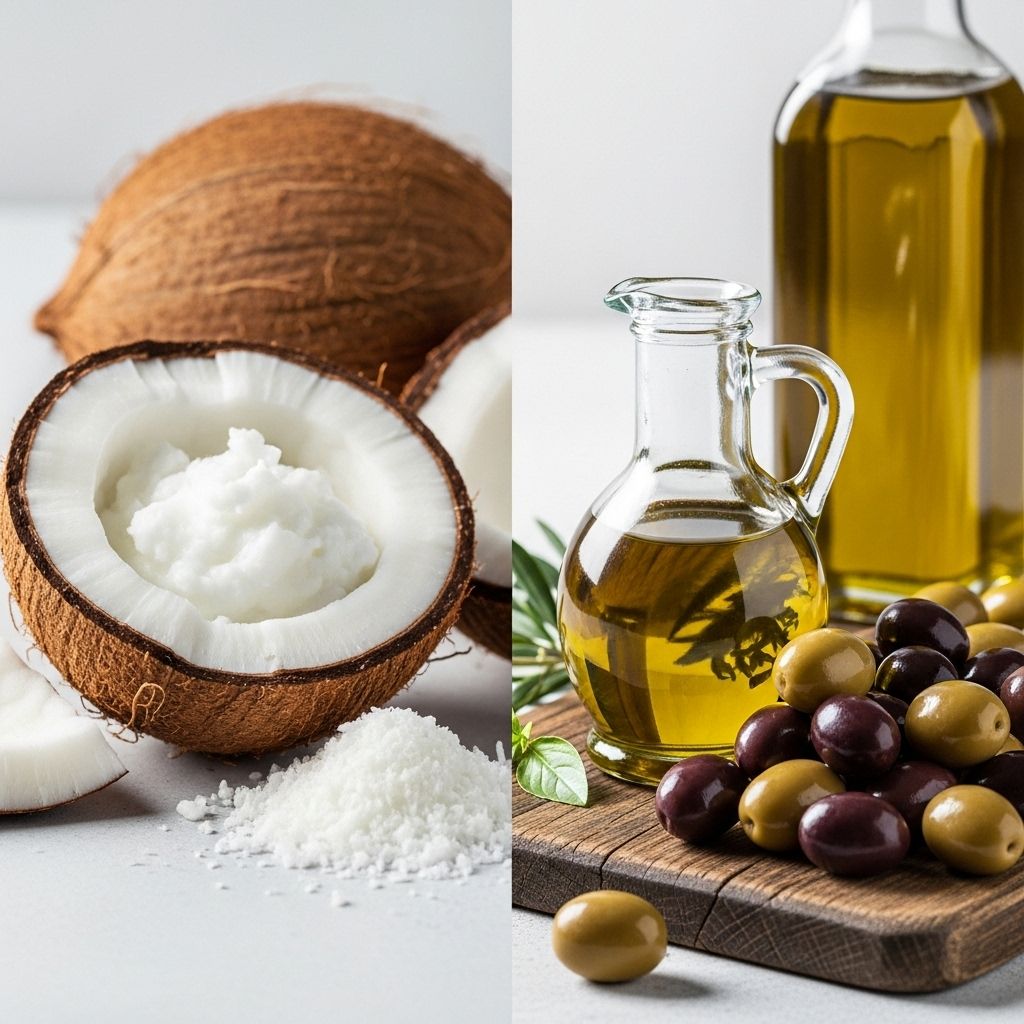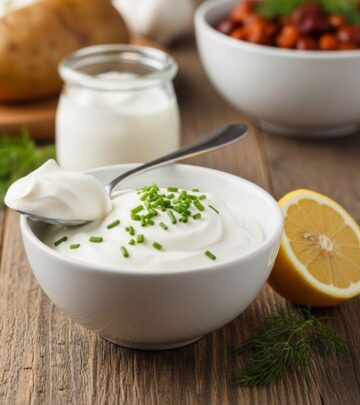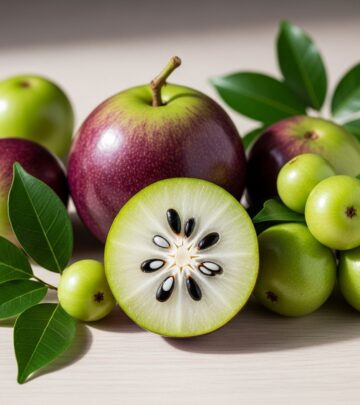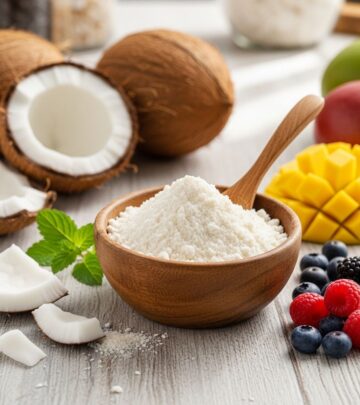Coconut Oil vs Olive Oil: Nutrition, Benefits, and Best Uses Compared
Unlock distinct textures and flavor profiles to elevate your cooking and beauty routines.

With increasing awareness about the role of fats in health and the popularity of wellness trends, coconut oil and olive oil have emerged as two prominent choices for cooking and personal care. But which oil is truly healthier, and how do they differ in composition, benefits, and practical uses? This comprehensive guide brings clarity to the debate, helping you make informed choices for your diet and lifestyle.
Understanding Coconut Oil and Olive Oil
Coconut Oil: Origins and Types
Coconut oil is extracted from the meat of mature coconuts. It is especially prevalent in Southeast Asian, Indian, and Pacific cuisines. There are mainly two types:
- Virgin Coconut Oil: Extracted from fresh coconut meat without the use of chemicals or high temperatures, preserving its nutty, tropical aroma and nutritional integrity.
- Refined Coconut Oil: Made from dried coconut (copra) and processed with heat and sometimes chemicals, resulting in a more neutral flavor and higher smoke point.
Olive Oil: Origins and Types
Olive oil comes from the pressing of fresh olives and is a staple of Mediterranean cuisine. Its types include:
- Extra Virgin Olive Oil (EVOO): Made from the first cold-press of olives, containing the highest content of antioxidants and nutrients.
- Virgin Olive Oil: Slightly lower in quality compared to EVOO, but still packed with beneficial monounsaturated fats and polyphenols.
- Refined Olive Oil: Heavily processed, with fewer antioxidants and a lighter flavor.
Nutritional Comparison: Coconut Oil vs Olive Oil
| Nutrient | Coconut Oil (per 100g) | Olive Oil (per 100g) |
|---|---|---|
| Total Calories | 862 kcal | 884 kcal |
| Saturated Fat | Around 82-90g | 13.8g |
| Monounsaturated Fat | 6.3g | About 73g |
| Polyunsaturated Fat | 1.7g | About 11g |
| Main Fatty Acid | Lauric Acid (MCT) | Oleic Acid |
| Vitamin E | Small amount | High (especially in EVOO) |
| Polyphenols/Antioxidants | Low | High (in EVOO) |
Fatty Acid Composition
The health impact of these oils is largely determined by their fatty acid content:
- Coconut Oil is primarily saturated fat (about 90%), predominantly medium-chain triglycerides (MCTs) such as lauric acid, with small amounts of myristic, palmitic, and capric acids.
- Olive Oil is composed mostly of monounsaturated fatty acids (about 75%), chiefly oleic acid, plus smaller amounts of polyunsaturated and saturated fats.
These contrasting profiles are key to the oils’ effects on cholesterol, cardiovascular health, and overall metabolism.
Health Benefits: A Detailed Comparison
1. Heart Health
- Olive Oil‘s monounsaturated fats, especially in EVOO, are known to reduce LDL (“bad”) cholesterol and the risk of heart disease. These fats support healthy arteries and lower inflammation.
- Coconut Oil, despite its popularity, is higher in saturated fats. Studies suggest it raises HDL (“good”) cholesterol, but it may also raise LDL cholesterol, so medical bodies remain cautious about recommending it as a heart-healthy choice.
2. Antioxidant Properties
- Olive Oil, especially extra virgin varieties, is rich in polyphenols and vitamin E, potent antioxidants that help combat inflammation and cellular damage.
- Coconut Oil contains fewer antioxidants, although virgin coconut oil retains some phenolic compounds.
3. Nutrient Absorption
- Both oils assist in the absorption of fat-soluble vitamins (A, D, E, and K) when consumed with fruits and vegetables.
4. Weight Management and Metabolism
- Coconut Oil‘s MCTs are quickly metabolized for energy and have been linked anecdotally to increased metabolism and potential weight loss. However, evidence is mixed and more research is required before health claims can be substantiated.
- Olive Oil supports satiety and healthy metabolism, and fits well within weight loss and maintenance diets, such as the Mediterranean diet.
5. Skin and Hair Care
- Coconut Oil is famed for its moisturizing, antimicrobial, and soothing properties and is often used as a natural remedy for dry skin, hair conditioning, and minor wounds.
- Olive Oil, packed with vitamin E and antioxidants, is also used topically to nourish, protect, and revitalize the skin, and can enhance skin elasticity and repair.
Other Compounds: Antioxidants and Polyphenols
Extra virgin olive oil stands out for its rich content of polyphenols and antioxidant compounds—over 36 different polyphenols have been identified—whereas coconut oil contains significantly less. This antioxidant punch is why olive oil is frequently featured in heart-healthy diets and is linked with reduced chronic disease risk.
Culinary Uses: Choosing the Right Oil for Cooking
Olive Oil in the Kitchen
- Staple of Mediterranean cuisine: Essential in dressings, marinades, low-to-medium heat cooking, and drizzling over finished dishes. The robust flavor of EVOO pairs particularly well with salads, pastas, vegetables, and fish.
- Smoke point: EVOO (approx. 375°F/190°C)—suitable for sautéing, but not recommended for prolonged high-heat frying.
Coconut Oil in the Kitchen
- Central to Asian cuisines: Adds a subtle tropical sweetness, ideal for stir-frying, curries, baking, and desserts.
- Smoke point: Virgin coconut oil (~350°F/177°C), refined coconut oil (~400-450°F/204-232°C)—good for medium to high-heat cooking.
When choosing between them, let the recipe and desired flavor profile guide your choice:
- Coconut Oil: Great for adding richness and distinct flavor to Southeast Asian or tropical dishes.
- Olive Oil: Best suited for salads, Mediterranean cuisine, and dishes where a fruity, peppery note is desired.
Production Methods and Sustainability
- Coconut Oil: Primarily produced in tropical regions. Virgin coconut oil is minimally processed; refined versions use heat and sometimes chemicals. Sustainability practices vary, and demand can impact local economies.
- Olive Oil: Grown mainly in Mediterranean countries. Extra virgin and virgin oils are made by cold-pressing olives; refined oils are processed for lighter taste and higher smoke points. There are growing concerns about olive grove sustainability and water use, but many producers are adopting responsible farming methods.
Price and Availability
- Olive Oil—especially high-grade EVOO—is typically more expensive due to labor-intensive extraction and lower yield. Prices may vary widely depending on quality, origin, and packaging.
- Coconut Oil is usually less costly, particularly in tropical regions where coconuts are abundant. Price can also reflect the distinction between virgin and refined types.
Which Oil is Healthier?
The health benefits of both oils depend on the quantity consumed and overall diet:
- Olive Oil (especially EVOO) is widely considered healthier for cardiovascular and general health, due to its lower saturated fat, high monounsaturated fat, and high antioxidant content.
- Coconut Oil can offer benefits in moderation, particularly for those seeking an alternative baking or frying oil with unique flavor. Its effects on cholesterol are complex and warrant caution for those with heart concerns.
Balance and moderation are critical. Both oils have their place in a varied, nutrient-rich diet.
Frequently Asked Questions (FAQs)
Q: Can coconut oil or olive oil help with weight loss?
A: While coconut oil’s MCTs are rapidly converted to energy and may marginally increase metabolism, evidence supporting significant weight loss benefits is limited. Olive oil, within the context of a Mediterranean diet, can contribute to satiety and healthy weight management when used to replace less healthy fats.
Q: Which oil is better for high-heat cooking?
A: Refined coconut oil has a higher smoke point (up to 450°F) and is more suitable for high-heat applications like frying or roasting. Extra virgin olive oil is best used for low-to-medium heat cooking and as a finishing oil.
Q: Is coconut oil bad for your heart?
A: Coconut oil contains high saturated fat, which increases both LDL and HDL cholesterol. While some studies suggest neutral or even positive effects, major health organizations recommend consuming coconut oil in moderation, especially for those at risk of cardiovascular disease.
Q: Can both oils be used for skin and hair care?
A: Yes. Coconut oil is an effective moisturizer and conditioner for dry skin and hair, while olive oil rich in antioxidants can soothe skin and protect against damage. Always patch-test before widespread use.
Q: Which oil is more sustainable?
A: Both oils present environmental challenges. Olive oil production can be resource-intensive, particularly regarding water use. Coconut oil relies on tropical agriculture, which can threaten biodiversity if not managed responsibly. Look for certifications regarding sustainable practices when possible.
Key Takeaways and Final Comparison Table
| Feature | Coconut Oil | Olive Oil |
|---|---|---|
| Flavor Profile | Sweet, tropical, creamy | Fruity, peppery, robust |
| Main Fat Type | Saturated (Lauric acid, MCTs) | Monounsaturated (Oleic acid) |
| Heart Health | Raises HDL, but may also raise LDL | Reduces LDL, lowers heart disease risk |
| Key Nutrients | Lauric acid, small amounts of vitamin E | High in vitamin E and polyphenols (EVOO) |
| Culinary Uses | Stir-frying, baking, Asian cuisine | Salads, sautéing, Mediterranean cuisine |
| Best for | Medium to high-heat, unique flavor, skin/hair care | Low-to-medium heat, dressings, overall wellness |
References and Further Reading
- Fondo Gionino – Coconut Oil vs Olive Oil: Which Oil is Healthier?
- Olive Wellness Institute – How does olive oil compare with coconut oil?
- Exau Olive Oil – Coconut Oil vs Olive Oil
- Diet vs Disease – Coconut Oil vs Olive Oil vs Canola Oil Study
References
- https://gionino.com/blogs/fondo-gionino/coconut-oil-vs-olive-oil
- https://olivewellnessinstitute.org/article/how-does-olive-oil-compare-with-coconut-oil/
- https://exauoliveoil.com/blogs/olive-oil/coconut-oil-vs-olive-oil
- https://www.dietvsdisease.org/coconut-oil-vs-olive-oil-study/
- https://mortadellahead.com/coconut-oil-vs-olive-oil-which-is-healthier-for-cooking/
- https://www.health.harvard.edu/blog/olive-oil-or-coconut-oil-which-is-worthy-of-kitchen-staple-status-2020061820077
- https://health.clevelandclinic.org/olive-oil-vs-coconut-oil-which-is-heart-healthier
- https://www.healthline.com/nutrition/coconut-oil-vs-olive-oil-which-is-better
Read full bio of medha deb













